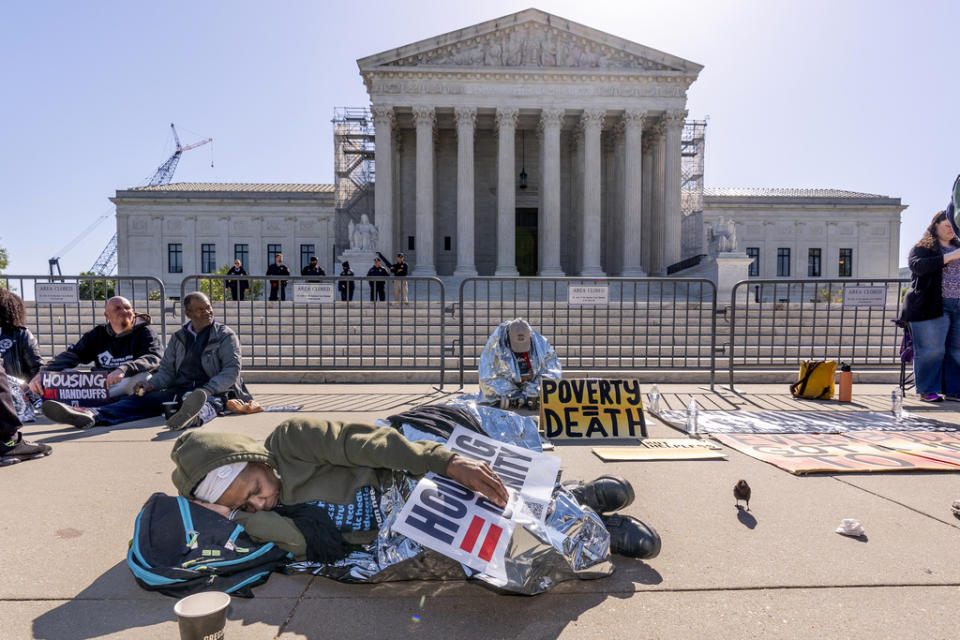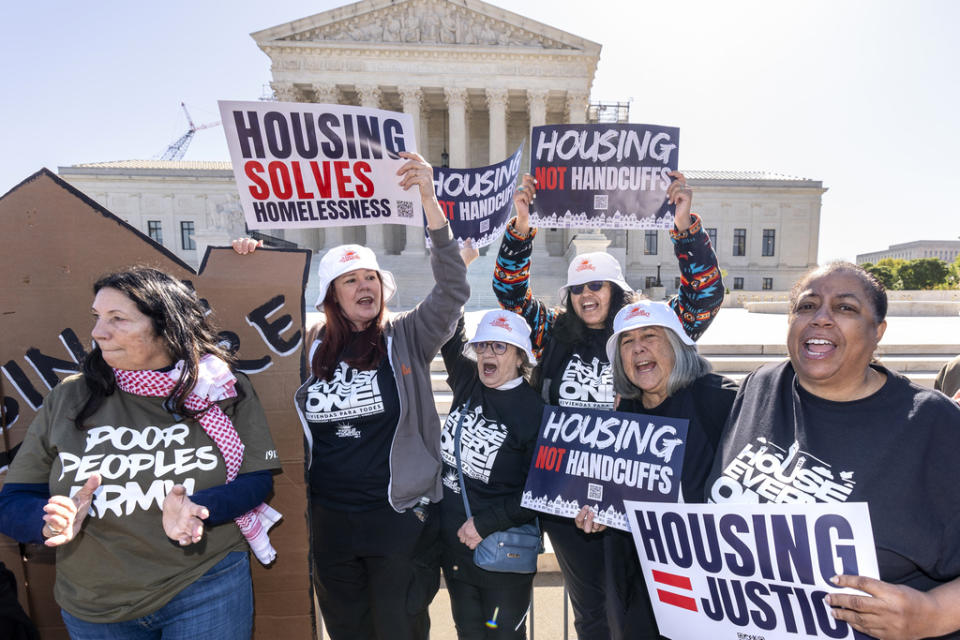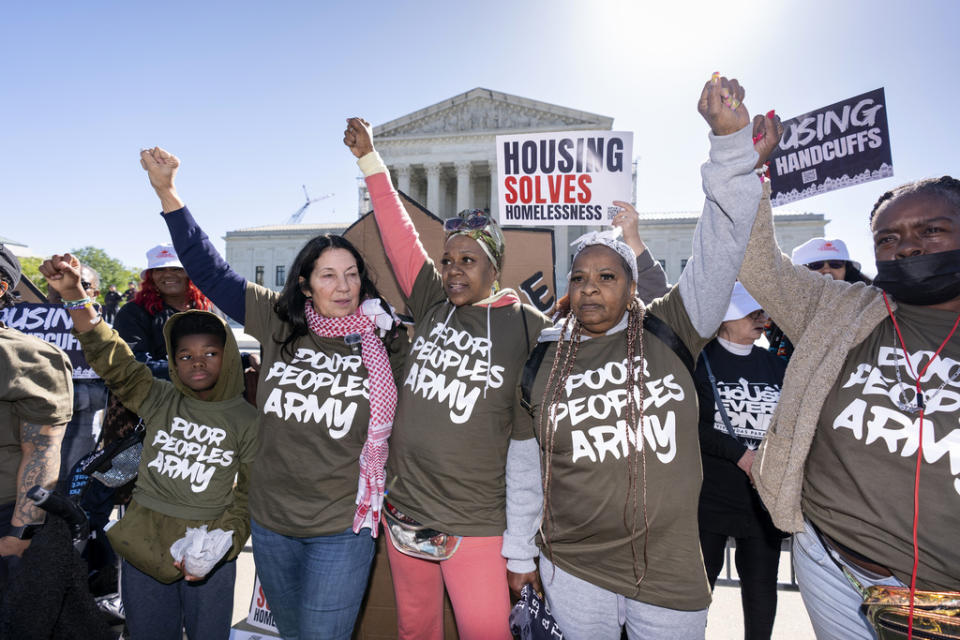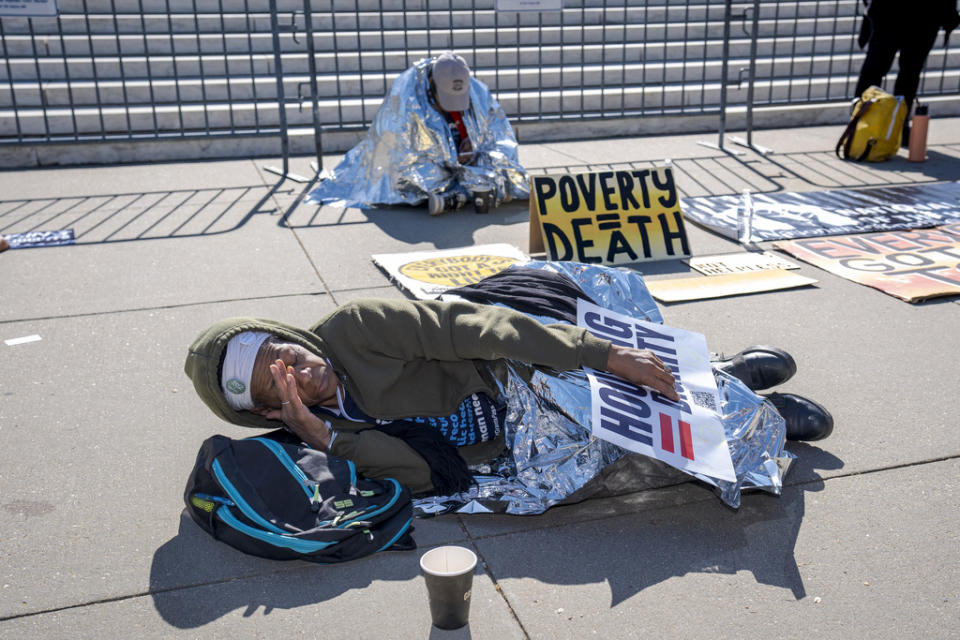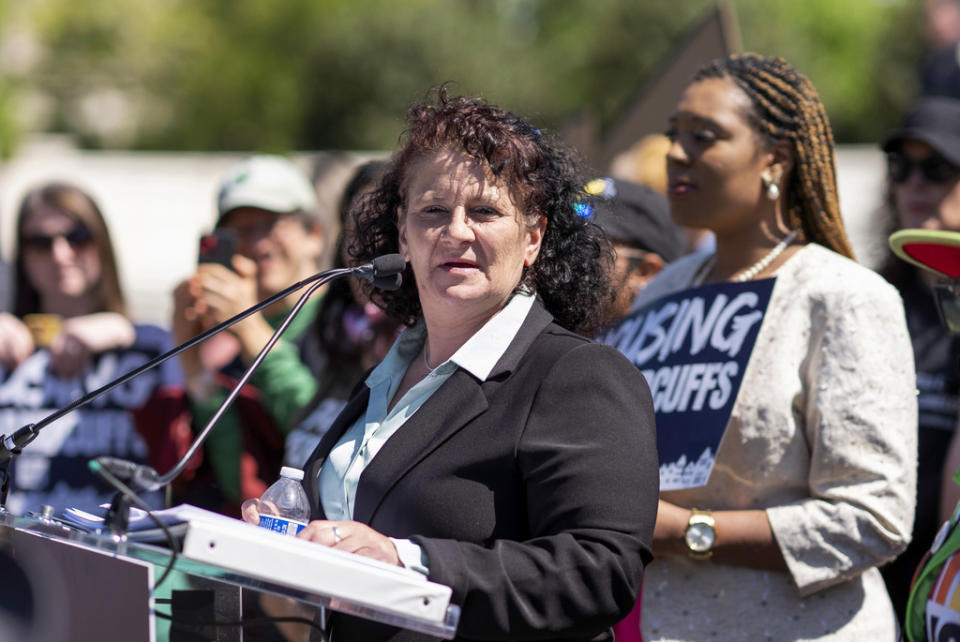US Supreme Court weighs bans on sleeping outdoors in Grants Pass case
WASHINGTON (AP) — The Supreme Court wrestled with major questions about the growing issue of homelessness on Monday as it considered whether cities can punish people for sleeping outside when shelter space is lacking.
The case is the most significant to come before the high court in decades on the issue and comes as record numbers of people are without a permanent place to live in the United States.
Grants Pass homeless case at SCOTUS ‘not complicated’
It started in the rural Oregon town of Grants Pass, which began fining people $295 for sleeping outside as the cost of housing escalated and tents sprung up in the city’s public parks. The town appealed to the high court after the San Francisco-based U.S. 9th Circuit Court of Appeals found that banning camping in places without enough shelter amounts to cruel and unusual punishment.
On the ground in Grants Pass
A Josephine County advocacy group, Mint, spends time in the parks trying to help the hundreds they encounter with medical resources, food and affordable housing.
“I’m a single mom and I live within a mile of those parks where tents are,” said Cassy Leach, a volunteer nurse with Mint. “I wanted to understand why there are so many people. I took kind of the curiosity approach. But it really opened my eyes to kind of understanding the seriousness of affordable housing.”
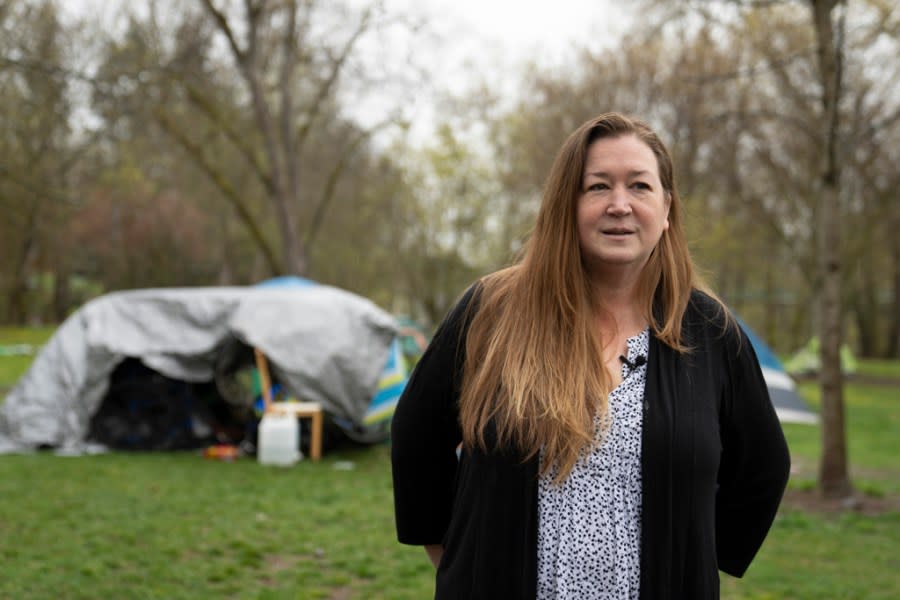
Grants Pass Mayor Sara Bristol told KOIN 6 News the issue has dominated her time in office.
“Here in Grants Pass, our community would very much like to have safe, clean parks and public spaces. We are actively working on establishing shelters so the unhoused population will have safe, clean places to rest,” Bristol said. “This isn’t a ‘choose one’ situation. I would like to have both.”
Both Bristol and Leach said regardless of what the Supreme Court decides, affordable housing will remain their biggest local obstacle to getting support for more people.
— Todd Unger, KOIN 6 News anchor
What happened at the US Supreme Court
The justices appeared to be leaning toward a narrow ruling in the case after hearing arguments that showed the stark terms of the debate over homelessness in Western states like California, which is home to one-third of the country’s homeless population.
Sleeping is a biological necessity, and people may be forced to do it outside if they can’t afford housing or there’s no space in shelters, Justice Sonia Sotomayor said.
“Where do we put them if every city, every village, every town lacks compassion and passes a law identical to this? Where are they supposed to sleep? Are they supposed to kill themselves, not sleeping?” she said.
Activists demonstrate at the Supreme Court as the justices consider a challenge to rulings that found punishing people for sleeping outside when shelter space is lacking amounts to unconstitutional cruel and unusual punishment, on Capitol Hill in Washington, Monday, April 22, 2024. (AP Photo/J. Scott Applewhite) Activists demonstrate at the Supreme Court as the justices consider a challenge to rulings that found punishing people for sleeping outside when shelter space is lacking amounts to unconstitutional cruel and unusual punishment, on Capitol Hill in Washington, Monday, April 22, 2024. (AP Photo/J. Scott Applewhite) Activists demonstrate at the Supreme Court as the justices consider a challenge to rulings that found punishing people for sleeping outside when shelter space is lacking amounts to unconstitutional cruel and unusual punishment, on Capitol Hill in Washington, Monday, April 22, 2024. (AP Photo/J. Scott Applewhite) Activists demonstrate at the Supreme Court as the justices consider a challenge to rulings that found punishing people for sleeping outside when shelter space is lacking amounts to unconstitutional cruel and unusual punishment, on Capitol Hill in Washington, Monday, April 22, 2024. (AP Photo/J. Scott Applewhite) Helen Cruz, who once lived on the streets in Grants Pass, Ore., speaks at a rally outside the Supreme Court as the justices hear arguments in the Grants Pass homeless case, on Capitol Hill in Washington, Monday, April 22, 2024. (AP Photo/J. Scott Applewhite)
Solving homelessness is a complicated policy question, said Justice Brett Kavanaugh, who raised questions about both the role of federal courts and camping bans. “How does it help if there are not enough beds for the number of homeless people in the jurisdiction?” he said.
Other conservative justices questioned how far Eighth Amendment legal protections should extend as cities struggle with managing homeless encampments that can be dangerous and unsanitary.
“How about if there are no public bathroom facilities, do people have an Eighth Amendment right to defecate and urinate outdoors?” said Justice Neil Gorsuch.
Other public-health laws cover that situation, Justice Department attorney Edwin Kneedler said. He said people shouldn’t be punished just for sleeping outside, but argued the 9th Circuit ruling should be tossed out because the court didn’t do enough to determine if people are “involuntarily homeless.”
Gorsuch and other justices also raised the possibility that other aspects of state or federal law could help sort through the issue, potentially without setting sweeping new legal precedent.
The question is an urgent one in the West, where a cross-section of Democratic and Republican officials contend that makes it difficult for them to manage encampments.
Photos capture wild bear roaming through downtown Corvallis
Hundreds of advocacy groups, on the other hand, argue that allowing cities to punish people who need a place to sleep will criminalize homelessness and ultimately make the crisis worse as the cost of housing increases.
Dozens of demonstrators gathered outside the court Monday morning to advocate for more affordable housing, holding silver thermal blankets and signs like “housing not handcuffs.”
Homelessness in the United States grew a dramatic 12% last year to its highest reported level, as soaring rents and a decline in coronavirus pandemic assistance combined with a lack of access to mental health and addiction treatment to put housing out of reach for more people.
More than 650,000 people are estimated to be homeless, the most since the country began using the yearly point-in-time survey in 2007. People of color, LGBTQ+ people and seniors are disproportionately affected, advocates said.
The court is expected to decide the case by the end of June.
For the latest news, weather, sports, and streaming video, head to KOIN.com.
